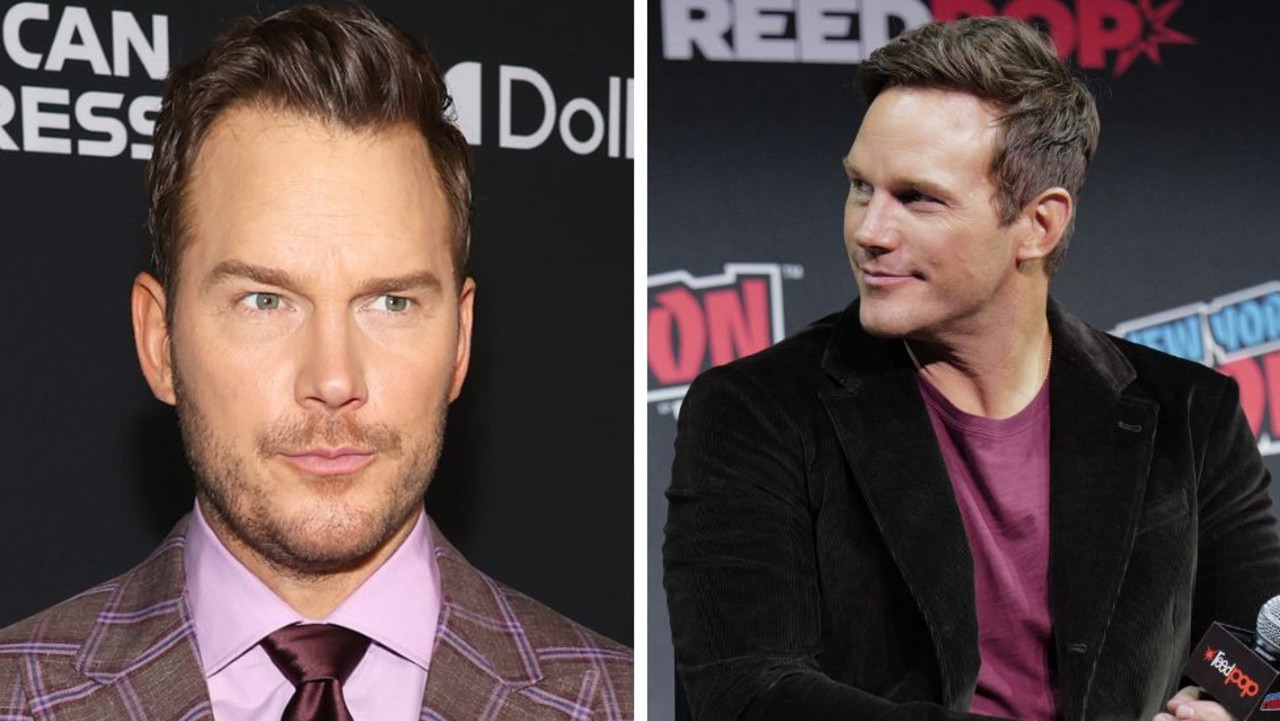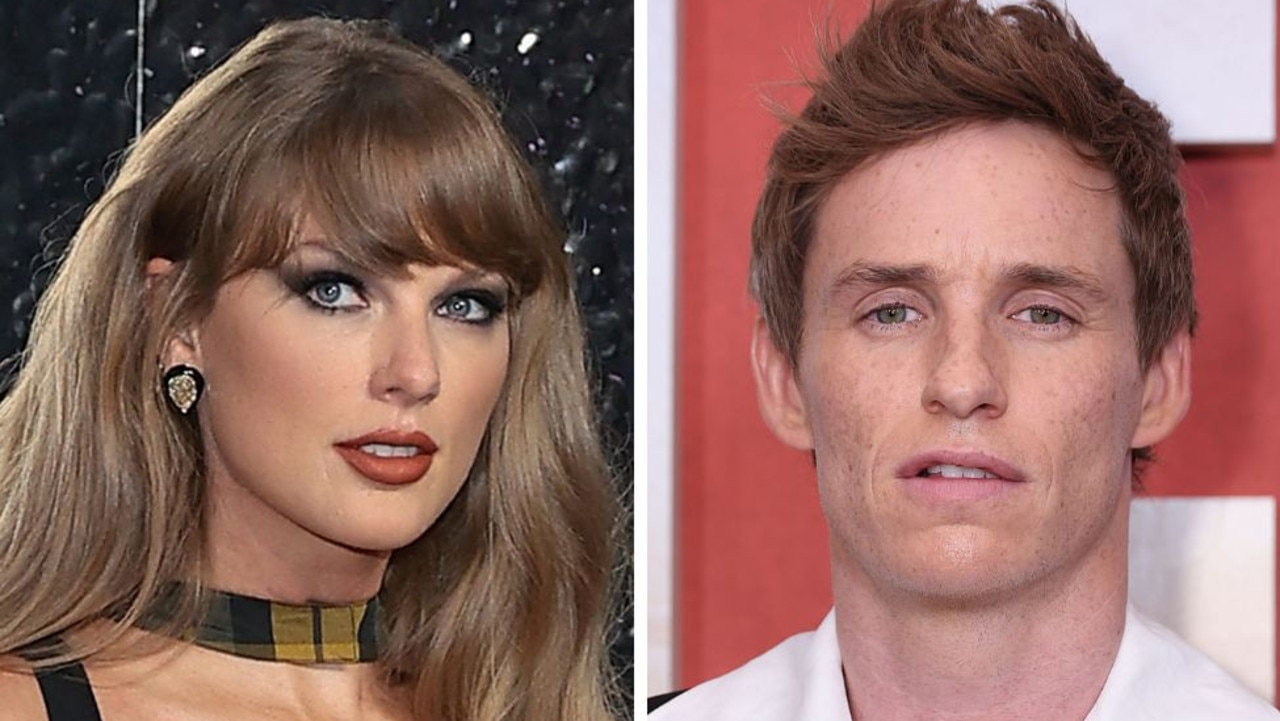Lord of the Rings: Ian McKellen biography reveals new details
It’s one of the most successful movie franchises of all time — but it wasn’t all smooth sailing behind the scenes on the Lord of the Rings.
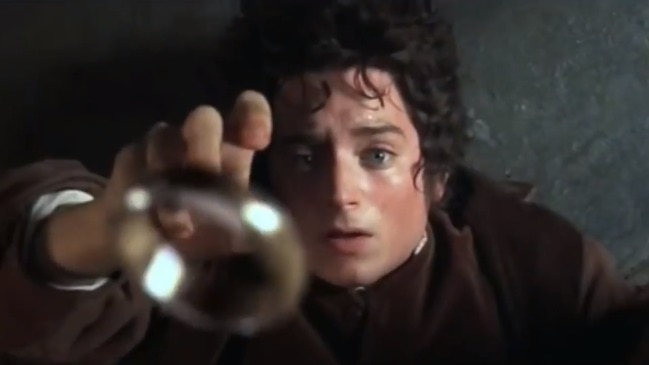
Movies
Don't miss out on the headlines from Movies. Followed categories will be added to My News.
Fresh details about the mammoth years-long project that produced the blockbuster Lord of the Rings franchise have been revealed in a new biography of one of its main stars.
Although he’d appeared in a handful of films in the nearly 40 years before the trilogy was filmed, Sir Ian McKellen was largely known for his success as a theatrical actor before he was cast in LOTR.
But 1999 proved a huge year for McKellen in Hollywood.
Along with landing the role of Magneto in X-Men, the British star was chosen to play the wise wizard Gandalf — a major role in a big-budget movie that would go on to have a huge impact in cinematic history.
RELATED: Why Russell Crowe turned down LOTR
RELATED: Tolkien movie for LOTR diehards
RELATED: Why Peter Jackson couldn’t enjoy watching LOTR
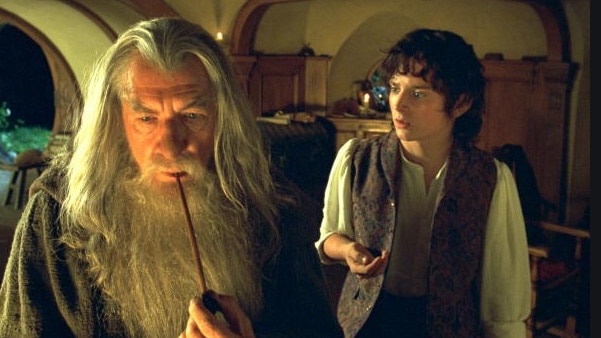
Here are some of the highlights about the making of LOTR from Garry O’Connor’s new book, Ian McKellen: The Biography.
NOT FIRST CHOICE
McKellen became a household name as Gandalf, but he was far from the director and studio’s first choice to take on the role.
In the biography, it’s revealed that among those considered were Christopher Plummer and Sean Connery, who were “better known movie stars” at the time of casting in the late ’90s.
Plummer blamed the lengthy filming schedule in New Zealand for his decision to reject the role, explaining at the time: “I thought there were other countries I’d like to visit before I croak.” Once the franchise became a global success, he admitted he regretted his decision, joking: “I hate that son of a b**ch Ian McKellen!”
Connery was reportedly offered a deal in which he would receive $6 million for playing Gandalf, as well as a 25 per cent cut of the movies’ gross profits, but refused on the grounds that he “never understood the script”.
Given the three films collectively made $2.91 billion — it proved a costly decision.
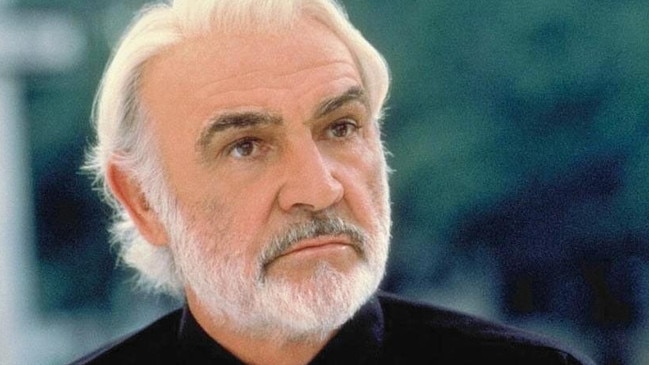
Even Richard Harris, who went on to play Albus Dumbledore in the first two Harry Potter movies before his death in 2002, read for the part but also turned it down.
Meanwhile, McKellen had never read LOTR before he signed the deal — which was reportedly worth more than $7 million.
He was initially hesitant but was “lured” into agreeing to the project after the surprise arrival at his East London home of LOTR director Peter Jackson and his wife, Fran Walsh, who co-wrote all three screenplays.
The filmmaking duo convinced McKellen to play Gandalf — but the reality of his involvement became a bit of a headache for Jackson and the crew during the first few months on set.
McKellen was still tied up in Canada filming X-Men, meaning the crew had to “rejig the shooting” and push his scenes further and further along in the schedule at a hefty cost.
He ended up missing the first three months of shooting, finally arriving for his first day on January 25 in 2000.
BILBO V GANDALF
The unorthodox acting methods of Ian Holm — who played Bilbo Baggins in the trilogy — initially left McKellen a little rattled during their scenes together.
Holm “diced with spontaneity” and never did the same take twice, warning McKellen from the first days of filming: “I like to try different things on each take, so if you let me do three or four takes, I’ll give you a variety of different readings.”
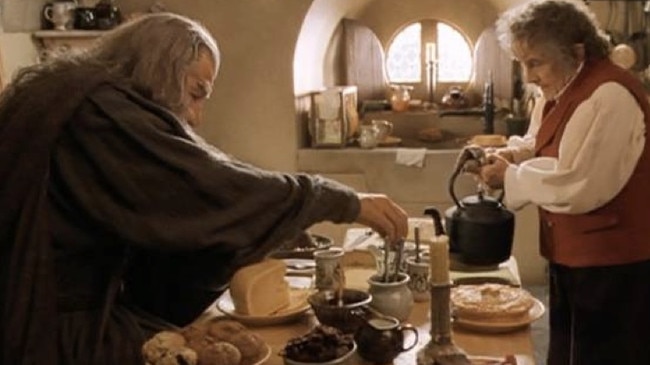
McKellen was “in awe” of Holm’s ability, according to Jackson, but also “slightly fazed by playing opposite a character who, on the face of it, seemed to be quite erratic”.
One day, he even pulled the director to one side and asked: “Do you like what Ian does?” to which Jackson replied: “It’s great.”
McKellen responded he “could never do it”.
“I have to decide what the scene is about and then try to achieve that to the very best of my ability,” he said.
“ANGRY AND FRUSTRATED”
It was one of the most dramatic and significant scenes in the entire trilogy, but McKellen “struggled” while filming his battle with the demon Balrog in Fellowship of the Ring.
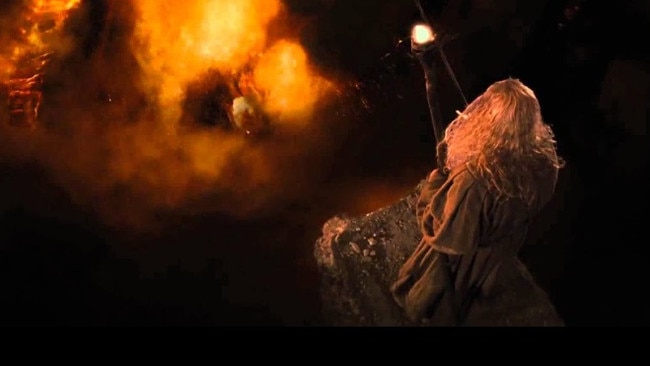
According to O’Connor, McKellen had “difficulties and some stress” during shooting for the gut-wrenching moment, in which he sacrifices himself to save the rest of the group and ultimately dies (although — spoiler — he comes back to life as Gandalf the White in The Two Towers).
The Balrog existed only as “conceptual art”, so McKellen had to navigate his way through the emotional scenes with only a “tennis ball on a stick” to work with, leaving him “angry and frustrated”.
Jackson later admitted it was “tough on (McKellen)”, explaining he “got a bit crotchety about having to do this powerhouse performance to absolutely nothing”.
THE FEATHER BOA
McKellen — along with the rest of the cast and crew — was feeling exceptionally drained and exhausted after months of the gruelling filming schedule and as the Christmas 2000 wrap date loomed.
On the final day of shooting, Jackson shot the Council of War scene in the morning and, later, a scene featuring Aragorn that ended up on the cutting room floor.
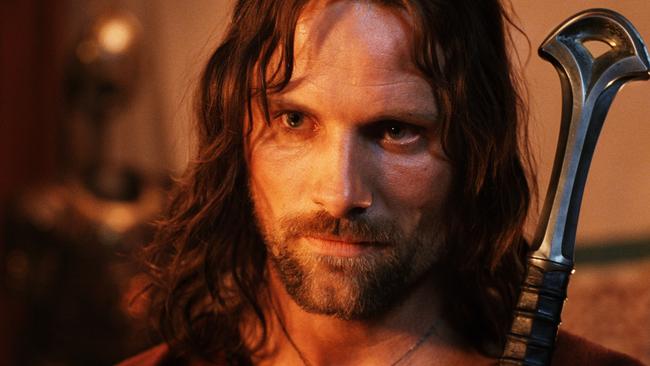
They were “really serious dramatic scenes”, as Jackson later explained, “but it was a really fun day.”
According to the director, there was a party atmosphere and “everyone was in a good mood”.
In fact, things got a little silly, and after someone brought a feather boa on set (a little out of place in Middle Earth), Jackson instigated a new rule — whoever was operating the clapperboard had to wear it. Everyone was happy to oblige.
When they finally finished up around 5pm, Jackson and his cast and crew jumped into the vans and drove over to meet his wife’s separate filming unit as they wrapped their scenes — and surprised them with bottles of champagne.
OSCAR SNUB
Despite the overwhelming critical acclaim and numerous award nominations for Fellowship of the Ring, The Two Towers and Return of the King, McKellen never got his big Oscars moment.
And, according to O’Connor, it really bothered him.
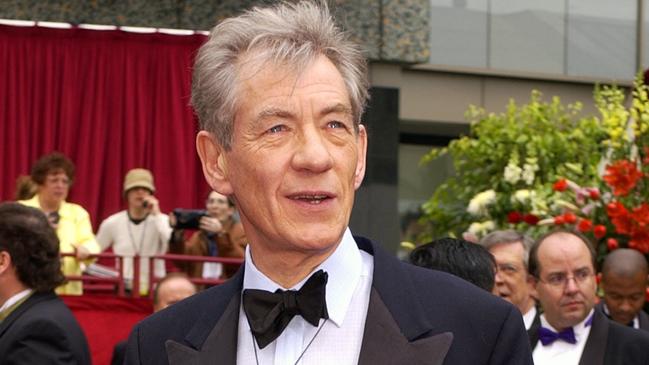
The only nod he received was a nomination for Best Supporting Actor for Fellowship, but he lost out to Iris’ Jim Broadbent.
The author claimed he “grumbled on forever about it” and cited Hollywood’s discriminatory attitude toward openly gay actors as a factor.
Whenever the subject was broached, McKellen would point out: “You shouldn’t look to Hollywood for social advancement.”
He also repeatedly stated his belief that he did not win an Oscar because at the ceremony he had a speech in his pocket “denouncing Hollywood homophobia — and that the reason was political”.
Although McKellen missed out, the trilogy still raked in a whopping 17 Oscars wins from 30 nominations.
Ian McKellen: The Biography by Garry O’Connor is available to buy now.
Originally published as Lord of the Rings: Ian McKellen biography reveals new details


